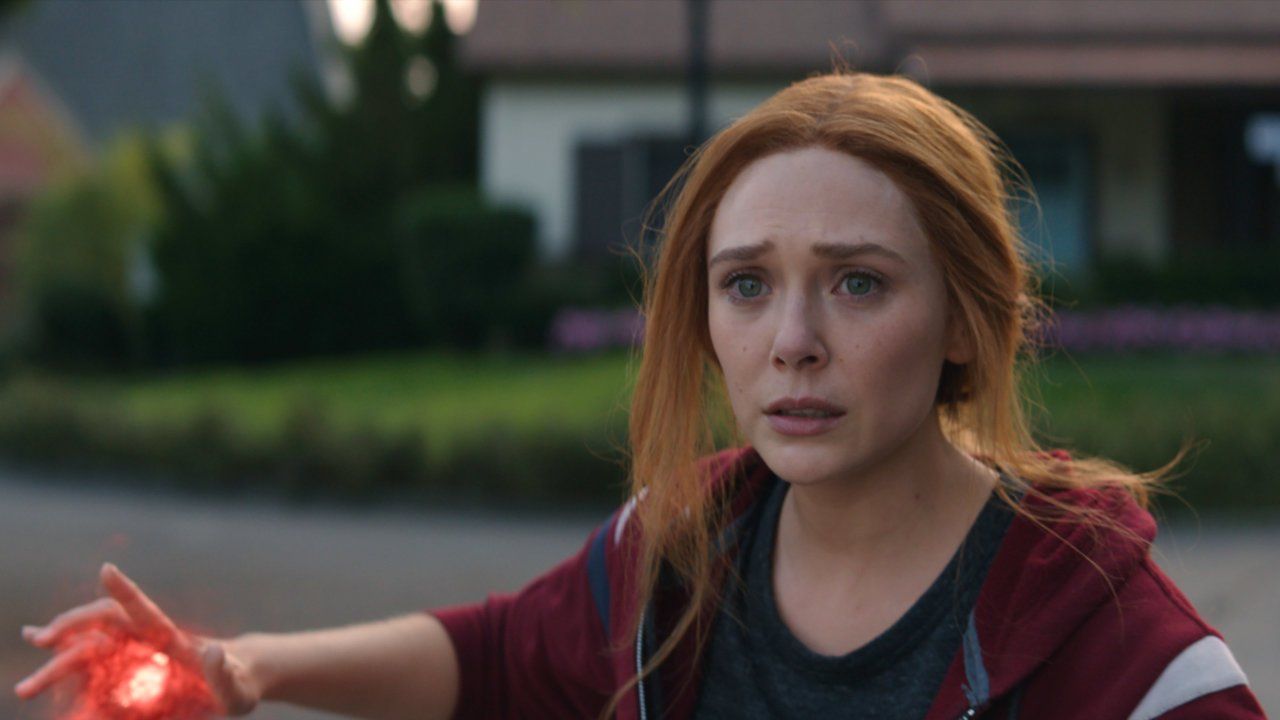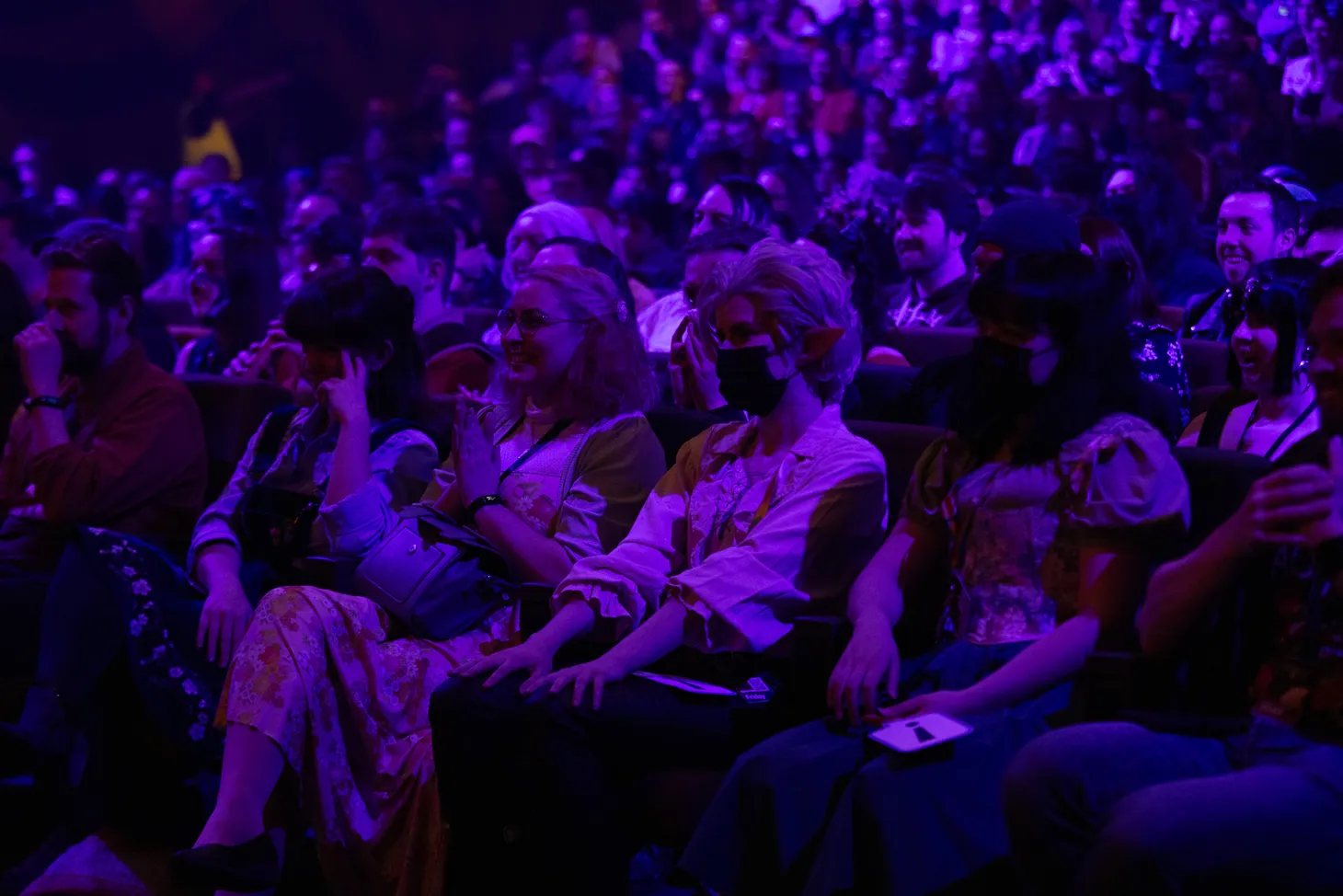WandaVision's ending was typical MCU fare but a fun journey
WandaVision's more personal and grounded approach to MCU storytelling was a treat, even if the final episodes resorted to exposition aplenty.

What is the Marvel Cinematic Universe, if not a tested formula persevering?
Minor WandaVision spoilers to follow.
With Marvel's nine-part WandaVision series now complete, the MCU is once more at the forefront of pop culture.
The Disney+ series is without a doubt the most popular TV show or film so far in 2021, taking the mantle briefly belonging to Netflix's raunchy Bridgerton series.
While both shows star beautiful, costumed characters navigating complex relationships, only one has the added benefit (and curse) of being part of the gargantuan Marvel franchise.
WandaVision's intrinsic attachment to something greater than itself was simultaneously its greatest strength and weakness.
In telling a smaller, more personal, tale following the cataclysmic events of Avengers: Endgame, Wanda Maximoff's character study made for highly watchable television.
On the other end of the spectrum, it was inevitable WandaVision would eventually have to abandon its tighter focus to establish the MCU's future machinations.
After all, each Marvel property is but one small cog in the massive Disney-owned machine.
Such a Vision
WandaVision's quirky journey through sitcom history was a wonderful format, culminating in a delightful mystery romp by the series' midpoint.
While Wanda struggled to maintain the illusion of an idyllic family lifestyle, we bore witness to many lovely small moments between her and Vision the MCU films simply aren't capable of portraying.
Or rather, they could, although the runtime for each movie would exceed four hours — perhaps this is the aim of Zack Snyder's Justice League, to allow for tender moments between Batman and the Joker?
Early WandaVision conflicts revolved around dilemmas solvable in a single episode, such as not revealing the eponymous pair's superpowers at the town's local talent show, encumbered by Vision's gum-related stupor.
Of course, with SWORD's involvement, it was clear there was always something bigger at play.
It was just nice to have the big serious stuff as a footnote simmering away while we enjoyed learning more about Wanda and Vision's characters through comparatively mundane scenarios.
WandaVision also marks a rare MCU example where the bulk of the screen time went towards developing a female character.
Granted, most of Wanda's motivations derived from the are-they-aren't-they-dead men in her life — baby steps, Marvel, don't hurt yourself trying too hard.
Yes, there have also been the Jessica Jones and Agent Carters of the world, but they've been treated as being on the peripheries of the main events. Also, Captain Marvel was a welcome addition to the MCU, albeit a well overdue one.
Bringing it back to WandaVision, by taking the time to flesh out characters without always fixating on some world-threatening event, it provided more leniency for when the latter inevitably happened.
Marvel fatigue
MCU fatigue is not a new concept; prior to 2020, we were inundated with multiple Marvel releases across cinemas each year.
Around the time of Avengers: Age of Ultron — coincidentally, a significant entry story-wise for WandaVision — was when I hit my limit.
One of my consistent gripes with many of the MCU films is that the stakes are so frequently heightened. This is to be expected somewhat when dealing with characters equipped with superhuman abilities, however, but it eventually makes for monotonous storytelling.
With the fate of the world always in question, with roughly two hours of screen time to solve it each time, you become numb to the outcome.
This is why I love Thor: Ragnarok so much, as Taika Watiti's comedic chops brought such a human touch to a character who happens to be a deity capable of shooting lightning, in addition to more personal conflicts between characters, not just some big bad at the end.
WandaVision also largely succeeds in this area due to the slowed pace allowing for more character development.
This is not to suggest all of Marvel's franchises need to be drawn out into multi-part series. In fact, the MCU is technically one big series, with each entry serving a greater narrative.
What was refreshing about WandaVision was it appealed to casual fans like myself who don't want to commit to every new Marvel release in order to enjoy a good story.
Although the last couple of episodes devolved into the exposition-laden, action-heavy approach the MCU has made billions from over the years, it felt earned.
The quirkiness, care and pacing given to WandaVision up until those final episodes made sure we cared about how Wanda's arc ended.
Of course, there was time spent setting up yet another thing in the MCU and establishing further implications for the characters involved.
Wanda finally gained her Scarlet Witch moniker, setting fandom conversations ablaze with what she'll achieve with the Darkhold tome. Meanwhile, I thought her new outfit looked cool.
Hardcore Marvel comic book fans love this stuff, the setting up of how their favourite characters and plotlines will manifest.
For casuals like myself, it's a little wearying trying to keep up with all of the references and why seeing "x" character could mean "y". It feels a little like entering an exam you've barely studied for. Which, to be fair, there's over half a century of source material to draw from.
Despite all this, WandaVision was a lot of fun, and I'm glad it sated diehard Marvel fans who've waited a while for their next MCU morsel.
I'm even considering sticking around for The Falcon and The Winter Soldier plus treating myself to Tom Hiddleston being effortlessly charming in the Loki series later in the year.
I mean, with Disney+ catering so nicely to Australian-friendly viewing hours, it would be rude not to, right?
Byteside Newsletter
Join the newsletter to receive the latest updates in your inbox.


